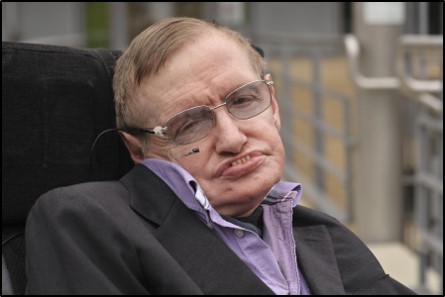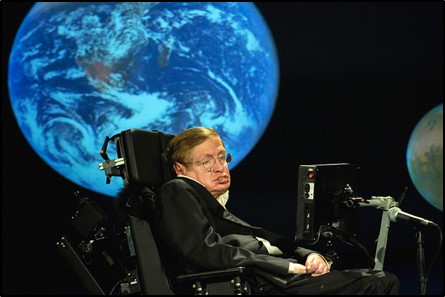

Stephen Hawking, who died at the age of 76, had lived with the crippling disease ALS for 55 years. How did he do it? Probably in no small part because he was rich,
famous and extremely well cared for, experts said. Hawking was one of the best-known scientists of modern times, as famous for his motorized wheelchair and
computer-generated voice as he was for his user-friendly explanations of esoteric physics and cosmology.
His intellectual strengths were the stuff of awe, but so was his ability to lead not simply a normal life, but an extraordinary one,
while suffering with a tremendously debilitating condition. Hawking was diagnosed in 1963, when he was just 21 years old.
He survived for 55 years with the incurable condition. “His survival is longer than most,” said Dr. Jeffrey Elliott, chief of the neuromuscular disorders section at
the University of Texas Southwestern Medical Center. “I think part of his longevity may have been because he had a slowly progressive form.
Probably it was also due to the exclusive nursing and medical care that he received.”
Hawking received round-the-clock medical care, at first from a wife who gave up her career ambitions to tend to him, and later from a team of nurses.
He was told when diagnosed that he likely would not live long — but he beat the odds. According to the ALS Association, half of all people affected with ALS live at
least three or more years after diagnosis. Twenty percent live five years or more; up to 10 percent will live more than 10 years.

People diagnosed when they are young, as Hawking was, live for longer for reasons that are not well understood. It may be that a different
cause of the disease shows up in young adults. “One type of ALS is caused by a change in gene A, another by gene B.
There are different causes, also, for sporadic ALS,” said Elliott.
Over the years there was speculation about whether Hawking had an unusual form of ALS. Elliott said in his experience, people who get better care tend to live longer.
“Survival really depends on the type of medical and nursing care that they get,” he said. The longest any of his patients have survived is about 20 years, he said.
The paralysis caused by ALS puts people at risk of choking, pneumonia and digestive blockages, as well as other infections.
Most eventually require a ventilator and that requires constant maintenance and monitoring to prevent infections and to make sure the patient has good oxygen levels.
Many patients opt out of the expensive and time-consuming treatment needed to stay alive and healthy, Elliott said. In 1985, Hawking had a tracheostomy for
ventilator treatment when he caught pneumonia. The operation cost him his voice. “After this, I had to have 24-hour nursing care, made possible by grants from
several foundations,” Hawking told the British Medical Journal in 2002.
Hawking also had good income from his books, including “A Brief History of Time”. Elliott said it would have taken a lot of private funding to pay for the care
and equipment that kept Hawking from being an invalid. “It comes with a price, round-the-clock attention,” Elliott said. “It’s challenging in terms of having
the resources to do that, financially.” It’s not something that health insurance usually covers. Hawking had care from nurses, physical therapists and various other assistants.

Could Hawking’s devotion to his career have helped keep him alive? “Mental attitude makes a difference, for sure,” Elliott said. Hawking said so, also.
“When you are faced with the possibility of an early death, it makes you realize that life is worth living and that there
are a lot of things you want to do,” Hawking was quoted often as saying.
To see a simplified version of Stephen Hawking's contributions, take a look at this video!